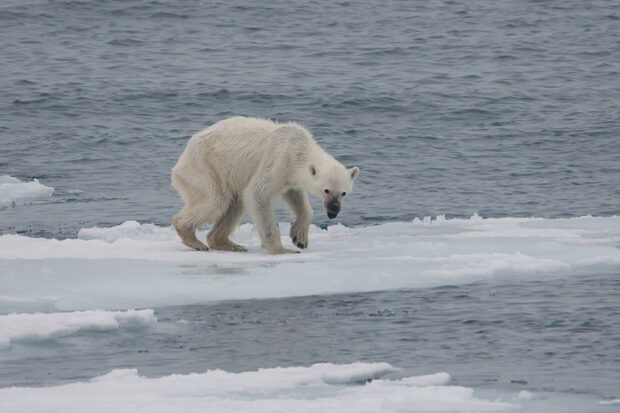
After the open discussion on climate change and security at the UN Security Council in July 2011 during the German Council Presidency, and considering further developments, governments and nongovernmental organizations actively promoted this topic with a broad spectrum of global stakeholders.
Over the past few years, there has been a noticeable increase in the worldwide discourse surrounding the security implications of climate change. It is almost universally acknowledged that climate change is one of the biggest threats to human welfare, global economic growth, and peace and security.
Droughts, floods and the general deterioration of the agricultural base are among the climate scenarios that combine to further lay the groundwork for ongoing environmental decline and instability in human security. These circumstances could lead to heightened competition for resources such as food, land and water, resulting in consequences that frequently lead to confrontation.
Moreover, the 2014 Quadrennial Defence Review designated climate change as a “threat multiplier.” This implies that social conflicts, political unrest, poverty and environmental degradation—all of which are currently widespread worldwide—will most likely be made worse by climate change.
The globe is facing a security challenge from climate change. A study published in A Journal of Peace Research and Action by Peter Halden et al. concluded that climate change might pose a significant danger to global political and economic stability because it weakens nations and societies. Therefore, it can put a great deal of stress on nations’ and societies’ ability to plan, organize and communicate.
This weakening effect will severely harm human security and imperil livelihoods, development and health. A decline in “interaction capacity” is probably going to make it harder for governments and other institutions to stop criminal networks using large-scale violence.
Vulnerability is caused by events and a lack of resilience, especially the capacity to adapt. Adapting to climate change is crucial for development, institutional strengthening, raising public awareness and education, fostering social strength and improving governance. Inadequate response to climate change could jeopardize these initiatives.
Precarious situations in coastal communities are expected to deteriorate due to erratic rainfall patterns and rising sea levels. Global worries have been raised about food, energy and water shortages brought on by extreme weather occurrences such as storms, floods and droughts. More migratory movements are predicted as a result of climate change.
The changed rainfall patterns brought about by global warming are causing variances in the water supplies of many states. Although certain places receive intense rainfall, others receive less than average or no rain. As a result, areas with higher rainfall experienced record-level floods, whereas areas with lower rainfall faced relentless droughts.
Rivalry over the limited resources is probably going to rise. For instance, when food needs increase, arable land becomes more desirable far and wide. It is necessary to improve regional collaboration and alter current agreements to reduce the likelihood of confrontations. The main concern is that climate change threatens to overburden states and regions.
Climate Diplomacy
Global concerns require global answers. Climate diplomacy is how states work together to address this complicated issue. One country acting alone will not be able to address the climate calamity.
A new paradigm in climate diplomacy is emerging due to the security implications of climate change. This paradigm includes existing policies, such as development cooperation, humanitarian assistance, conflict prevention, and mitigation and adaptation initiatives for climate change.
The primary purpose of climate diplomacy is to move from risk assessment to practical steps to alleviate climate change–related threats. With its focus on prevention, climate diplomacy can offer new opportunities for social and economic development by, for example, implementing sustainable solutions in the water and energy sectors and, more broadly, collaborating on the low-carbon economy and climate-resilient green economy strategies. It can also offer potential pathways for regional cooperation and benefit sharing.
Public participation in the discourse surrounding climate diplomacy is one of the Climate Diplomacy Initiative’s primary strategic goals.
Through implementing sustainable solutions in the water and energy sectors and collaborative efforts on low-carbon and climate-resilient green economy initiatives, climate diplomacy—which strongly emphasizes prevention—can offer novel avenues for social and economic advancement. In addition, it can provide opportunities for regional cooperation and win-win solutions.
With its enormous global ramifications, the climate crisis ranks among the most pressing issues of the 21st century. As things stand, our planet is going to get much warmer. Therefore, given the significant ramifications for U.S. foreign policy, a more active role for foreign policy in international climate policy is needed, mainly through climate diplomacy.
Global warming is a geopolitical issue that affects every nation. To solve this worldwide challenge, the State Department and its diplomats must collaborate with other nations through climate diplomacy.
Conclusion
One of the most significant environmental, social, economic and political challenges of this generation is climate change, which is already happening. Climate change is also a threat multiplier that exacerbates current trends, tensions and instability. It is crucial to understand that there are risks beyond humanitarian concerns, including political and security threats that immediately impact society and governments. Furthermore, in keeping with human security, it is evident that several concerns about how climate change affects international security are interconnected and need thorough policy responses.
By tapping sustainable solutions into the water and energy sectors and, more generally, working together on the low-carbon economy and climate-resilient green economy initiatives, climate diplomacy and stress prevention can create new chances for social and economic progress.
Moreover, climate diplomacy can offer opportunities for regional cooperation and sustainable development. The diplomacy of the 21st century will need to set higher standards for the climate, design the required fundamental systemic changes, and encourage and support new forms of global cooperation.

Nicely done.